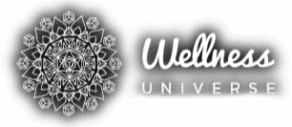An increasing body of research, is supporting the idea that emotions allow us to develop personal and social memory.
While there are many areas to be “filled in,” it’s interesting to note some of what we know so far. According to the NYU Department of Psychology and Center for Neural Science researcher Dr. Lila Davachi, creating memories is not only done by experiences in our external world, but is also “strongly influenced by our internal states.” In other words, life proceeds through an interaction between what we experience “out there,” and “in here.” In my own learning, the most fulfilling and powerful lives are lived when we start from, “in here” and proceed to, “out there.” Research into emotions is supporting this approach.
Researcher Dr. Fiona McPherson, (author of, The Memory Key), reports that, “emotional arousal helps us maintain a ‘readiness to respond’ state and also has a selective effect on the particular stimuli we notice and encode.” She suggests attention may be thought of as a, “state of activity,” that is triggered by various kinds of emotional arousal and modulated by it. Here, her research seems to support the ancient, spiritual principle that energy follows attention; with memory research showing how important energy focus is.
The spiritual principles are: “What you pay attention to, you tend to become,” and, “the only time we have power is in the present; and the only person over whom we have power is ourselves.” Think about what this could mean when supported by the research of memory and emotions. Taking command of our emotional lives leads us directly to self-empowerment!
More information that I love, comes from a new study at the University of Haifa led by Dr. Shlomo Wagner who says, “It turns out that different emotions cause the brain to work differently and on distinct frequencies.”
In my work, now largely captured in my book, Emotions in Motion, I assert that each of our emotions offers us a specific and different message.
Dr. Wagner’s research, happily, may support my clinical and spiritual-based learning. Following research with rats, Dr. Wagner’s work also laid the groundwork for my Emotions in Motion assertion that long-term social relationships offer us the greatest stimulation for learning. To quote the study, “The findings clearly showed that the excitement of the social encounter with a stranger-rat created the high level of synchronized rhythmic activity in the brain, and it was this factor that seems to facilitate the formation of social memory. In other words, we found a connection between the feeling of excitement, rhythmical activity in specific brain areas, and the cognitive process of memory formation.” Such may be the power of long-term social interaction; which, in my experience, is the place where our greatest learning occurs.
Wagner’s group shared this insight: “It seems that when the emotion is social and positive, the brain tells the same areas to work according to one communication protocol. When a different emotion is involved, such as a negative emotion of fear as in our experiment, the brain tells the same areas to use a different communication protocol…the implication is clear. Different emotions cause the brain to work differently, including in terms of cognitive processes such as learning and memory.”
Wagner is identifying fear as a “negative emotion,” with which I disagree. There is no such thing as a negative emotion. Emotions just are. However, we can experience fear as negative, depending upon how we interpret it, or what kind of experience it accompanies. The most important message is that different emotions stimulate our brains to work differently.
Since the 1970s, I’ve been gathering information from clinical, spiritual, and psychological sources to help me understand emotions. How exciting it is after years of telling the world that, “emotions are vitally important” and “emotions work on our behalf,” to have science catch up!
In this blog series, (and in my book, Emotions in Motion), I’ve shared with you that emotions are energy; given to humans as a gift to help us navigate our lives. Research is now showing just how they work; with different emotions activating specific areas of our brain and assisting us in creating memory.
These are such exciting times! It is definitely time for us to focus on, understand and work powerfully with emotions; which are with us 24/7/365 and birth-to-death.
Consider developing yourself as an emotional master.
Teach yourself to allow all emotions to move through you, allowing yourself to focus on those emotions and emotional events that bring your greatest satisfaction and pleasure.
Stay tuned for Part 4 of this series this time next week!
– Ilene

Find great products and services for your well-being from members of The Wellness Universe!
Ilene Dillon, MSW, has dedicated her life to helping people resolve personal challenges once and for all, then design life to be what they want it to be. A Transformation Specialist, she has worked 50 years as a psychotherapist and 15 years as a coach. She is a global speaker, Amazon International Best-selling author (The Wellness Universe Guide to Complete Self-Care, Volumes 1 and 2), podcast guest, and plans to give her first TEDx speech (on Anger) later this year. Ilene is also the author of Emotions in Motion: Mastering Life’s Built-in Navigation System and End Manipulation: Stop Being Jerked Around by Toxic, Energy-draining People. With her little dog, Pi, Ilene lives and travels full-time throughout North America in her RV, writing, teaching, and speaking along the way.



